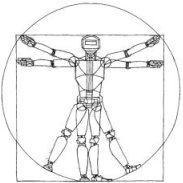Robotics: Science and Systems XVIII
A Local Optimization Framework for Multi-Objective Ergodic Search
Zhongqiang Ren, Akshaya Kesarimangalam Srinivasan, Howard Coffin, Ian Abraham, Howie ChosetAbstract:
Robots have the potential to perform search for a variety of applications under different scenarios. Our work is motivated by humanitarian assistant and disaster relief (HADR) where often it is critical to find signs of life in the presence of conflicting criteria, objectives, and information. We believe ergodic search can provide a framework for exploiting available information as well as exploring for new information for applications such as HADR, especially when time is of the essence. Ergodic search algorithms plan trajectories such that the time spent in a region is proportional to the amount of information in that region, and is able to naturally balance exploitation (myopically searching high-information areas) and exploration (visiting all locations in the search space for new information). Existing ergodic search algorithms, as well as other information-based approaches, typically consider search using only a single information map. However, in many scenarios, the use of multiple information maps that encode different types of relevant information is common. Ergodic search methods currently do not possess the ability for simultaneous nor do they have a way to balance which information gets priority. This leads us to formulate a Multi-Objective Ergodic Search (MOES) problem, which aims at finding the so-called Pareto-optimal solutions, for the purpose of providing human decision makers various solutions that trade off between conflicting criteria. To efficiently solve MOES, we develop a framework called Sequential Local Ergodic Search (SLES) that converts a MOES problem into a "weight space coverage" problem. It leverages the recent advances in ergodic search methods as well as the idea of local optimization to efficiently approximate the Pareto-optimal front. Our numerical results show that SLES computes solutions of better quality than the popular multi-objective genetic algorithms and runs distinctly faster than a naive scalarization method on a laptop.
Bibtex:
@INPROCEEDINGS{Ren-RSS-22,
AUTHOR = {Zhongqiang Ren AND {Akshaya Kesarimangalam} Srinivasan AND Howard Coffin AND Ian Abraham AND Howie Choset},
TITLE = {{A Local Optimization Framework for Multi-Objective Ergodic Search}},
BOOKTITLE = {Proceedings of Robotics: Science and Systems},
YEAR = {2022},
ADDRESS = {New York City, NY, USA},
MONTH = {June},
DOI = {10.15607/RSS.2022.XVIII.052}
}
